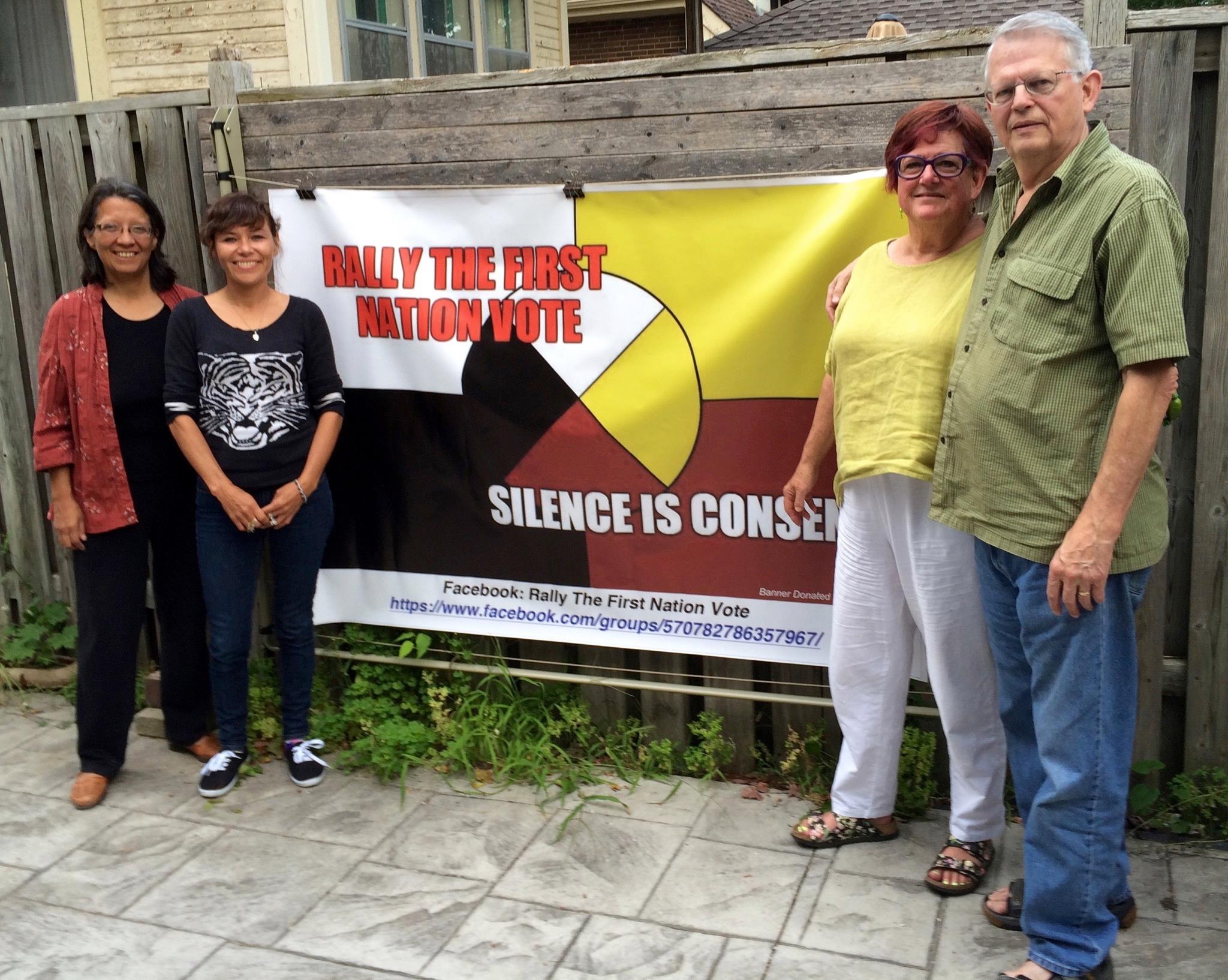The Most Crucial Election in the History of First Nations and Canada

By Tyrone Souliere, Rally the First Nation Vote
The people whose land contains the wealth should not be lacking in health care, housing, education, employment, nutrition and clean water — you would think. But they are. They should not have the shortest lifespans in the country. But they do. That’s the reality in Our Home and Native Land.
Canadians, in general, enjoy one of the highest standards of living in the world, something made possible, in part, by the billions of dollars in resource revenues taken every year from First Nation traditional territory. That money could help eradicate poverty and therefore most of the social ills on reserves and in the urban Indigenous population. But instead of those moneys being shared with the First Nations (as according to treaty), the federal government has blocked access to them, cutting funding and services.
For example, First Nations children get only one-third the funding the rest of Canadian children get. Also, as of last year, about half of the 133 First Nations in Ontario have been living with boil-water advisories. Ten First Nations in Northwestern Ontario have been without clean drinking water for over 10 years. Neskantaga First Nation, a community of about 300 people, has been without potable water since 1995. That’s 20 years, if you’re interested in those types of stats. Nobody cares for 20 years!
Meanwhile, last January in Winnipeg, a boil-water advisory made the national evening news and everybody cared deeply; and the problem was fixed in two days. Everyone cared deeply for two days!
These are just two brief examples and are really nothing in terms of the gross inequity between cultures in the Glorious and Free. And they are nothing compared to the legacy of colonialism that many First Nations people live with every day. Colonialism, by its very nature, allows for low-quality social services for the colonized people. Colonialism’s objective is to destroy the fabric of the society that is being colonized so that the ruling force can more easily acquire and exploit the land and resources. And that is exactly what is happening today.
First Nations are colonial subjects in our own country. We are overseen by hired bureaucrats whose families immigrated to Canada from other countries, other continents. Up to this point, First Nation leaders have been answering to unnamed, unknown, faceless regulators and permit issuers. Meanwhile, funding for services is being cut, Treaty rights are being undermined, and Charter rights are being ignored.
The “lasting rich reward” proclaimed in the fourth verse (yes, there are four verses) of the Canadian national anthem apparently does not apply to the original inhabitants of the land. A lasting and long oppression is more like it.
Dr. Duncan Campbell Scott, head of the Department of Indian Affairs from 1913 to 1932, said this: “I want to get rid of the Indian problem. [Our] objective is to continue until there is not a single Indian in Canada that has not been absorbed into the body politic and there is no Indian question, and no Indian Department. . . .”
This is still the government’s agenda — total assimilation.
No First Nation identity.
No treaty rights.
No fiduciary obligations.
No special relationship with the Crown.
But wait a minute, something’s happening. The day the government greatly fears is coming upon them. That noise you hear is the sound of First Nations people getting organized, because, with the federal election on the horizon, the time is more critical than ever. The October 19 election will be one of the most critical moments in the history of First Nations’ relationships with Canada, and people are realizing it.
There is something different about this election. There is a sense that now is the time when the original inhabitants of the True North Strong and Free can come together as one and engage in the federal election and influence the outcome with our substantial numbers. There is a sense that now is the time to elect a government that will honour treaty, charter and Indigenous rights. There is a realization that voting is a powerful form of resistance.
First Nations, Métis and the urban Indigenous population have the numbers to deliver the margin of victory in many ridings to the party of their choosing, and we are organizing. There is a sense that if we vote, the election of a favourable government is not just possible, but probable.
After all, pigs are flying in Alberta. Aren’t they?
This coming election is crucial to First Nations, but here is something all Canadians should be aware of when they go to vote: they need to realize that when a government honours First Nation treaties, all Canadians benefit by having a healthier environment and a stronger economy. When the government shares with First Nations the billions of dollars in resource revenues taken from treaty lands, the money goes back into the economy and all Canadians benefit. When the government honours its duty to consult with First Nations according to the Charter of Canadian Rights and Freedoms, before passing laws that harm the environment, the environment is protected and all Canadians benefit.
Our treaty designers knew what they were doing. They knew that our well-being comes from the earth. We are all treaty people.



